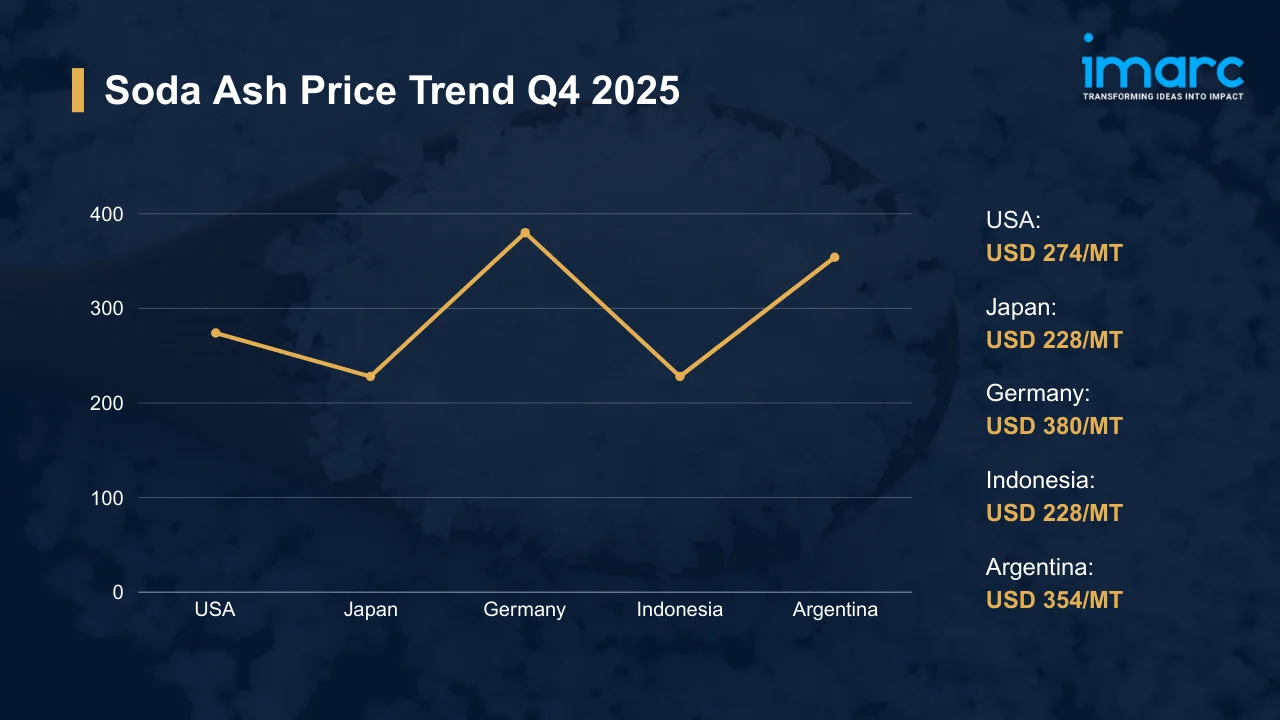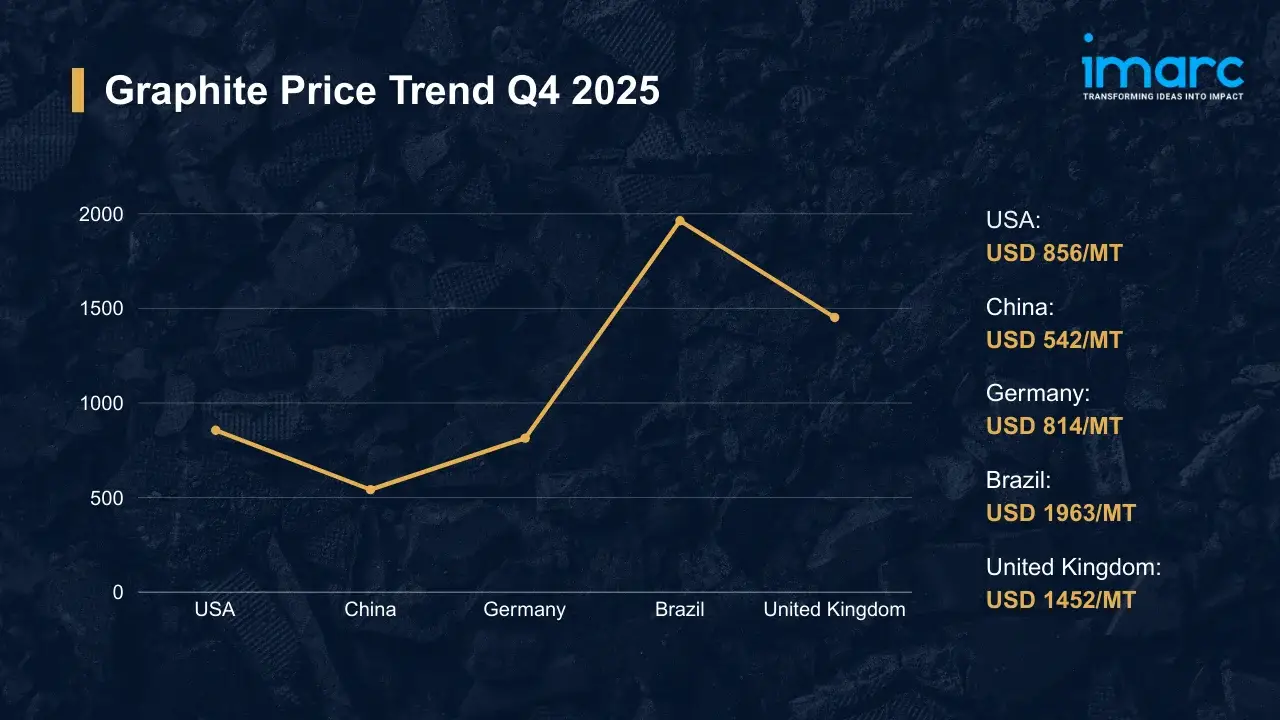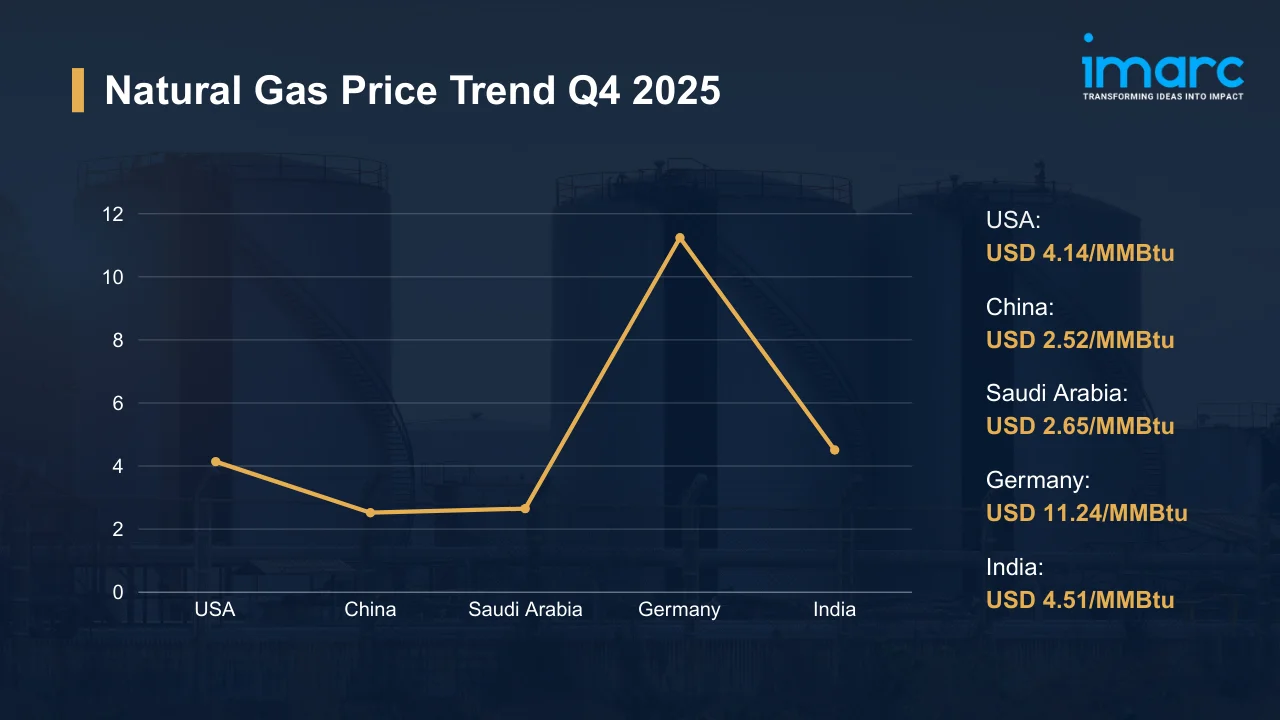Q2 2025 Jet Fuel Prices Hit Multi-Year Highs, Impacting Airfare Rates
11-Aug-2025_11zon.webp)
The global jet fuel market experienced downward pressure on prices due to a weakening demand outlook and disruptions in trade flows, according to IMARC Group’s latest publication, Jet Fuel Price Index, Trend and Forecast Data Report 2025 Edition, which provides updated insights for Q2 2025. While global supply remained relatively stable, country-specific regulatory measures, trade policies, and energy cost structures led to varied price trajectories across major regions. The report highlights key pricing developments and underlying factors in North America, Asia Pacific, and Europe, offering a comprehensive view of market movements.
Q2 2025 Jet Fuel Prices:
- USA: USD 2.102/Gallon
- United Kingdom: USD 2.036/Gallon
- Japan: USD 2.057/Gallon
- Brazil: USD 2.114/Gallon
- Belgium: USD 2.036/Gallon
_11zon.webp)
To access real-time prices Request Sample
The current prices reflect the material’s critical role in high-performance industries such as aviation and air freight, where regulatory shifts, supply dynamics, and operational demands continue to support a stable or rising global price trend.
Key Regional Price Trends and Market Drivers:
USA
Jet fuel prices in the United States reached USD 2.102/Gallon in June 2025. The decline was attributed to soft spot buying amid deteriorating demand and uncertainty stemming from new tariffs imposed by the Trump administration. These developments adversely impacted air freight and business travel, pushing refiners to lower prices to offload inventories.
United Kingdom
In the UK, jet fuel prices settled at USD 2.036/Gallon in Q2 2025, influenced by the introduction of a Sustainable Aviation Fuel (SAF) blending mandate. Although the mandate was modest, it introduced notable cost implications, with refiners and suppliers adjusting pricing structures to accommodate SAF-related costs.
Japan
Japan recorded jet fuel prices of USD 2.057/Gallon in the second quarter of 2025, with conventional jet fuel prices staying firm due to stable kerosene crack spreads and limited SAF integration. Most airlines continued to depend on imported jet fuel or more affordable foreign SAF alternatives, resulting in steady market conditions.
Brazil
Jet fuel prices in Brazil reached USD 2.114/Gallon in June 2025, following Petrobras’s decision to cut average prices to distributors. This move, combined with a drop in domestic airline fuel expenditures, supported carrier margins, especially after early-quarter pressures from currency depreciation and volatile oil prices.
Belgium
Belgium jet fuel prices stood at USD 2.036/Gallon in Q2 2025. The implementation of EU-mandated SAF blending raised procurement costs slightly, particularly for international carriers. Additionally, planned refinery maintenance constrained local supply, contributing to modest upward pricing pressure.
Jet Fuel Industry Overview:
The global jet fuel market reached a value of USD 176.7 Billion in 2024 and is projected to grow to USD 470.5 Billion by 2033, expanding at a CAGR of 10.20% during 2025–2033. This strong growth outlook underscores the critical importance of jet fuel in powering commercial aviation, air cargo operations, and defense fleets worldwide. As air travel demand rebounds and international connectivity strengthens, fuel consumption across key global routes is expected to rise steadily.
The market is driven by several factors, including the resurgence of international tourism, expansion of airline fleets, and ongoing modernization of aviation infrastructure. Additionally, the increasing integration of Sustainable Aviation Fuel (SAF) in line with decarbonization targets, regulatory mandates promoting cleaner alternatives, and steady growth in emerging market air traffic are key contributors to the industry’s upward trajectory.
Recent Market Trends and Industry Analysis:
The recovery in international and domestic air travel remains a key driver of jet fuel demand, with passenger volumes rising sharply. Airlines are reinstating routes and increasing flight frequencies, leading to greater aviation turbine fuel (ATF) consumption. Refineries are adjusting output ratios to prioritize jet fuel, as growing tourism, business travel, and cargo movements push fleet utilization to new highs. The expansion of budget airlines and long-haul operations by Middle Eastern carriers further supports this surge.
In addition to this, geopolitical tensions and increased defense spending have bolstered military aviation fuel demand. Frequent military exercises, surveillance operations, and humanitarian missions have kept defense fleets active across North America, the Middle East, and Eastern Europe, offering a stable demand base less affected by seasonal or environmental regulations. Simultaneously, the continued boom in e-commerce is driving up air freight operations, with global logistics firms increasing cargo flights and sustaining high fuel draw at refueling hubs.
Strategic Forecasting and Analysis:
IMARC’s report incorporates forecasting models that project near-term price movements based on evolving trade policies, raw material supply, and technological trends. These tools enable businesses to mitigate risk, enhance sourcing strategies, and support long-term planning.
Key Features of the Report:
- Price Charts and Historical Data
- FOB and CIF Spot Pricing
- Regional Demand-Supply Assessments
- Port-Level Price Analysis
- Sector-Specific Demand and Supply Insights








.webp)




.webp)












